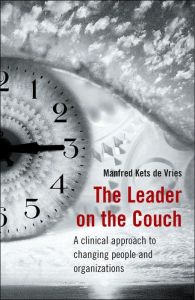Join getAbstract to access the summary!

Join getAbstract to access the summary!
Manfred Kets de Vries
The Leader on the Couch
A Clinical Approach to Changing People & Organisations
Jossey-Bass, 2006
What's inside?
Like individuals, organizations have a psychology and unconscious patterns of behavior.
Recommendation
When Manfred Kets de Vries uses stories – from his own experience, history or Zen parables – to show how you can use psychology to understand the workplace, his points are clear and seem immediately applicable. Admittedly, his discussion of the theories that frame and guide his work vary from instructive to somewhat obscure, and his classifications of personality and organizational types may seem arbitrary, but when he explains the processes involved in change, he is realistic and humane. Philosophically or psychologically inclined readers may really want a more thorough explanation of de Vries' concepts, such as how unconscious structures interact with cultural ones. Those who take a less theoretical approach may not be as intrigued. getAbstract thinks that readers who exert some conscious patience will find the author's core points about the role of the unconscious in the business world insightful and useful.
Summary
About the Author
Manfred Kets de Vries is director of a global leadership center. He has published more than 20 books and 200 articles.


















Comment on this summary